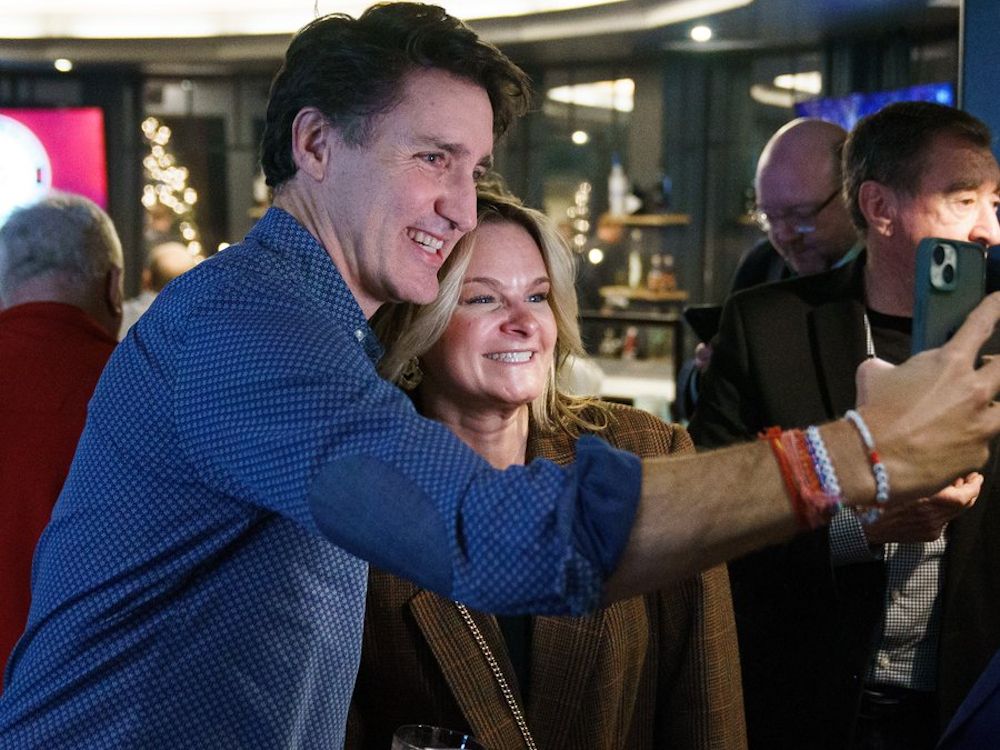Its messy but there it is.
__________________________________________________
TOP STORY
In a bid to combat Canada’s acute cost of living crisis (what Finance Minister Chrystia Freeland has called the “vibe-cession”), the Trudeau government has rolled out a pair of handout packages. One, a temporary GST holiday. The other, $250 rebates for everyone (well, everyone who’s earned employment income in the past year).
Advertisement 2
STORY CONTINUES BELOW
TRENDING
Article content
The NDP have argued that the $250 should be distributed more broadly, and the Conservatives have criticized the whole thing as a cynical ploy.
Lost in the debate is the fact that $250 is … not much. It’s about seven hours of work for the average Canadian, or two days if you’re working minimum wage. But in the context of the skyrocketing costs of living that have roiled Canada during the premiership of Justin Trudeau, $250 buys surprisingly little as compared to just 10 years ago.
Below, a cursory look at how far $250 goes in 2024 Canada.
It doesn’t quite cover one month’s worth of rent increase
In the fall of 2014, the Canada Mortgage and Housing Corporation
recorded that the average Canadian rent was $828 per month for a one-edroom and $918 per month for a two-bedroom. Adjusting for inflation, that’s equivalent to about $1,064 and $1,179 in 2024 dollars.
As per the
most recent rental survey, it’s now $1,359 for a one-bedroom and $2,049 for a two-bedroom. So, if you’re renting a one-bedroom, $250 only covers about four fifths of the $295/month premium you now pay in rent as compared to 2014.
Article content
If you’re renting a two-bedroom, you now pay $870/month extra as compared to 2014. So, $250 will cover about 10 days’ worth of that.
If you’d received $250 every month for the last 10 years, you still wouldn’t be able to afford a down payment
Ten years ago, the average home in Canada cost the inflation-adjusted equivalent of $525,000 ($408,795 in 2014 dollars). Assuming a 20 per cent down payment, you’d need the 2024 equivalent of $105,000 cash to buy one.
As of this writing, the
average Canadian home price is $696,166, meaning a 20 per cent down-payment now costs $139,233. In other words, buying an average Canadian home in 2024 requires about $34,000 more down-payment than it did in 2014.
Now, imagine the federal government was giving you a $250 cheque not just once – but every single month for the last 10 years. If you had saved every single one of those 120 cheques, you would have $30,000.
It accounts for two weeks’ worth of the extra income you would have had under 2014 growth rates
Right up until 2014, Canada had hewed pretty close to the U.S. in terms of GDP growth. But starting right around the election of Trudeau, the U.S. kept growing while Canada’s economic performance stagnated. Capital investment plummeted, and Canadian productivity (that is, the amount produced per worker) started to drop.
Last year, University of Calgary economist Trevor Tombe calculated that if Canada had simply stuck to its 2014-style growth rates, we’d
all be making an extra $5,500 per year.
So, $250 covers about two weeks’ worth of the extra money you would have been making if the Canadian economy hadn’t detached from the U.S. and plunged into a decade of decline.
It buys about the same amount of gas!
Some good news! Gas prices, despite all the carbon pricing and fuel levies, are about the same now as in 2014. In the fall of 2014, the Canadian average for a litre of gasoline was
hovering around $1.19 – about $1.53 in 2024 dollars.
IN OTHER NEWS
There’s been any number of outside polls showing that Canadian support for immigration has taken a sharp downturn in recent months. Just last month, the Environics Institute found that
more than half of Canadians believe there’s too much immigration – a phenomenon they haven’t witnessed since the 1990s. Well, apparently similar numbers are also showing up in the government’s internal polling. The 2024 IRCC Online Tracking Survey, commissioned by the Department of Immigration,
found that 47 per cent of Canadians think that too many immigrants are entering the country, that
42 per cent thought immigration was causing Canada to change in unlikeable ways, and 38 per cent agreed that “refugees pose a risk to the safety and security of Canadians.”
Every once in a while, the Conservatives will table a faint hope motion of non-confidence calling for the dissolution of the Trudeau government. Well, after the NDP backed a Liberal bill to enact a Christmas GST holiday, the Conservatives drew up the above text of a particularly nasty non-confidence motion they’re apparently going to table next. PHOTO BY X.COM/PIERREPOILIEVRE
Lest you think that all the various quips and insult in the House of Commons are merely performative,
MPs are known to sometimes yell at each other even when the cameras are off. In a clandestinely filmed
Friday video posted online by Conservative MP Michael Barrett, a contingent of NDPers can be seen standing over the Conservative benches to forcefully deliver a point of some kind, prompting Speaker of the House Greg Fergus to intervene to break it up.






